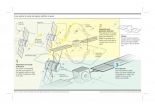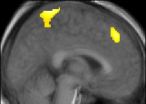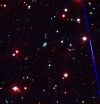(Press-News.org) Within the framework of this research project, "Acoplamiento y Agarre de Satélites mediante Sistemas Robóticos basado en Visión (Docking and Capture of Satellites through computer vision) (ASIROV)", the scientists have developed algorithms and strategies to dock and capture a disabled satellite through the use of a space vehicle, called a "chaser", which autonomously carries out this function. "In this way", explained the head of this research study, Mohamed Abderrahim, who is from the UC3M Department of Automated Systems Engineering, "we attempt to carry out all the phases of a satellite inspection and maintenance mission with another autonomous vehicle equipped with a robotic system for capture and control".
What is most outstanding about the designed prototype is its algorithmic part, according to the researchers, as they are not involved with the manufacture or launching of satellites. Their true contribution lies in the set of well-defined and ordered instructions which allow satellites to be programmed for the future so they can service others which have become disabled or which allow them to prolong the satellite's working life. These navigation algorithms, based on vision techniques, are capable of indentifying the objects of the search among various objects present, estimating their position and orientation.
In their research, given that the system cannot be tested in a real platform, the scientists have constructed a small bank of tests which allow them to simulate a scenario of this kind. They first designed vision algorithms which employ satellite model vertices as characteristic points. Then, they perfected the technique to design a new vision algorithm that uses the information about the texture around the points of interest of the image to associate them with the points in the model. "The latter technique is quite robust against noise, changes in the background and variations in illumination", Abderrahim noted. Furthermore, he stated, "that the speed of the algorithm allows it to be used in real time".
The idea behind this research came up thanks to the relation between the UC3M Robotics Lab and the engineers of the company GMV, which is dedicated to the space sector, and the existing need in the market for a system of this kind. "Today there is a growing need to provide satellite maintenance services, without relying on manned missions, which are very costly and involve risks. Robotics is the natural solution", Professor Abderrahim concluded.
The researchers are in contact with the Spanish company, SENER, as they explore paths for collaboration to implement this idea, with the aim of extending the working life of communication satellites to up to twelve years of service in space. In addition, all of the knowledge acquired within the framework of this research project, in which Julio César Díaz, Claudio Rossi, Nicolás Burrus and Marcos Iglesias have also participated –has been included as classroom material in the university subject, Robotics in Space, within the UC3M Master's Degree Program in Robotics and Automation.
INFORMATION:
A new system for locating and capturing satellites in space
2010-10-14
ELSE PRESS RELEASES FROM THIS DATE:
Scientists prepare for confined field trials of life-saving drought-tolerant transgenic maize
2010-10-14
DES MOINES, IOWA (14 October 2010)—Crop specialists in Kenya and Uganda have laid the groundwork for confined field trials to commence later this year for new varieties of maize genetically modified to survive recurrent droughts that threaten over 300 million Africans for whom maize is life, according to a speech given today by the head of the African Agricultural Technology Foundation (AATF) at the World Food Prize Symposium.
Scientists working with AATF believe it's important to explore the potential of biotechnology to maintain and increase food production in Africa, ...
I win, you lose: Brain imaging reveals how we learn from our competitors
2010-10-14
Learning from competitors is a critically important form of learning for animals and humans. A new study has used brain imaging to reveal how people and animals learn from failure and success.
The team from Bristol University led by Dr Paul Howard-Jones, Senior Lecturer in Education in the Graduate School of Education and Dr Rafal Bogacz, Senior Lecturer in the Department of Computer Science, scanned the brains of players as they battled against an artificial opponent in a computer game.
In the game, each player took turns with the computer to select one of four ...
Life expectancy higher in Israel than in US, according to Ben-Gurion U. researcher
2010-10-14
BEER-SHEVA, ISRAEL, October 13, 2010 — A new study conducted by a researcher at Ben-Gurion University of the Negev (BGU) for Jerusalem's Taub Center for Social Policy Studies in Israel reports that Israeli's have a higher life expectancy on average than Americans and residents of other OECD (Organization for Economic Cooperation and Development) countries.
According to the most recent data, from 2005, the average American life expectancy is now 78 years; for Israeli Jews, approximately 81 years and Israeli Arabs, 79 years. Japan has the highest life expectancy of OECD ...
Train a computer to classify pictures and videos based on the elements that they contain
2010-10-14
University of Granada researchers have developed a new computer technique that allows to "train" computers to interpret the visual contents of a video or picture. This advance will allow to classify automatically pictures basing on whether individuals or specific objects are present in such images. Videos can also be classified according to specific poses.
At present, computer search and classification of images is made basing on the name of the file, folder or on features as date or size, but the visual information contained was never used for classification purposes. ...
Study demonstrates pine bark naturally improves tinnitus
2010-10-14
HOBOKEN, N.J. (Sept. 13, 2010) – More than 50 million Americans will experience some degree of tinnitus in their lifetime, according to the American Tinnitus Association. Tinnitus is a hearing condition that causes the constant misperception of sound, including hissing, ringing and rushing noises. A study recently published in Panminerva Medica reveals that Pycnogenol® (pic-noj-en-all), an antioxidant plant extract derived from the bark of the French maritime pine tree, is effective in relieving tinnitus symptoms by improving blood flow in the inner ear.
"Impaired blood ...
Biopharma leaders to reveal successful strategies for China, India at the PharmAsia Summit
2010-10-14
San Francisco, Calif., 13 October, 2010 - Elsevier Business Intelligence, publisher of PharmAsia News, IN VIVO and "The Pink Sheet," today announced the agenda for Windhover's 2nd PharmAsia Summit (Oct. 25-26). This year's Summit will bring top biopharma leaders from Asia and the U.S. to San Francisco to share what works and what doesn't in China, India, Japan and the Pacific Rim.
At the PharmAsia Summit, you'll hear Asia strategies and case studies from industry leading experts on dealmaking, commercial strategy, outsourcing, regulatory risks, IP protection, and pricing ...
Early role of mitochondria in AD may help explain limitations to current beta amyloid hypothesis
2010-10-14
(NEW YORK, NY, October 13, 2010) – Before Alzheimer's patients experience memory loss, the brain's neurons have already suffered harm for years.
A new study in mouse models by researchers at Columbia University Medical Center has found that the brain's mitochondria -- the powerhouses of the cell -- are one of the earliest casualties of the disease. The study, which appeared in the online Early Edition of PNAS, also found that impaired mitochondria then injure the neurons' synapses, which are necessary for normal brain function.
"The damage to synapses is one of the ...
National study shows 1 in 5 children meet criteria for a mental disorder across their lifetime
2010-10-14
Washington, DC, 13 October 2010 - Mental disorders in children are often difficult to identify due to the myriad of changes that occur during the normal course of maturation. For the first time, researchers at the National Institute of Mental Health have reported on the prevalence data on a broad range of mental disorders in a nationally representative sample of U.S. adolescents, which show that approximately one in five children in the U.S. meet the criteria for a mental disorder severe enough to disrupt their daily lives.
The prevalence of the mental health disorders ...
Ghosts of the future
2010-10-14
Astronomers using the South Pole Telescope report that they have discovered the most massive galaxy cluster yet seen at a distance of 7 billion light-years. The cluster (designated SPT-CL J0546-5345) weighs in at around 800 trillion Suns, and holds hundreds of galaxies.
"This galaxy cluster wins the heavyweight title. It's among the most massive clusters ever found at this distance," said Mark Brodwin, a Smithsonian astronomer at the Harvard-Smithsonian Center for Astrophysics. Brodwin is first author on the paper announcing the discovery, which appeared in the Astrophysical ...
Compound in celery, peppers reduces age-related memory deficits
2010-10-14
CHAMPAIGN, lll. — A diet rich in the plant compound luteolin reduces age-related inflammation in the brain and related memory deficits by directly inhibiting the release of inflammatory molecules in the brain, researchers report.
Luteolin (LOOT-ee-oh-lin) is found in many plants, including carrots, peppers, celery, olive oil, peppermint, rosemary and chamomile.
The new study, which examined the effects of dietary luteolin in a mouse model of aging, appears in the Journal of Nutrition.
The researchers focused on microglial cells, specialized immune cells that reside ...



